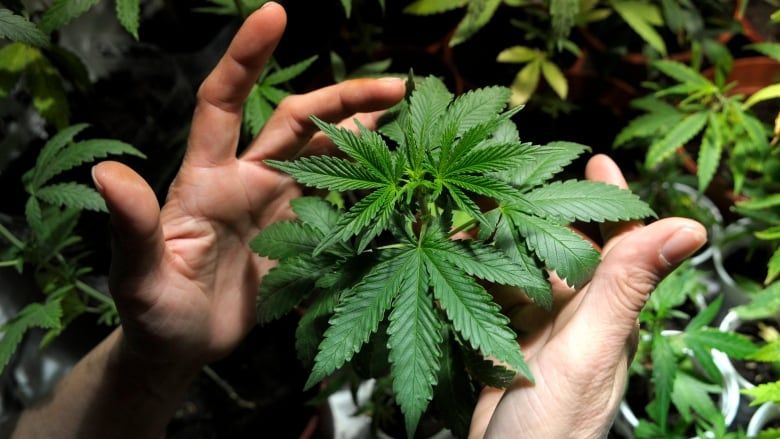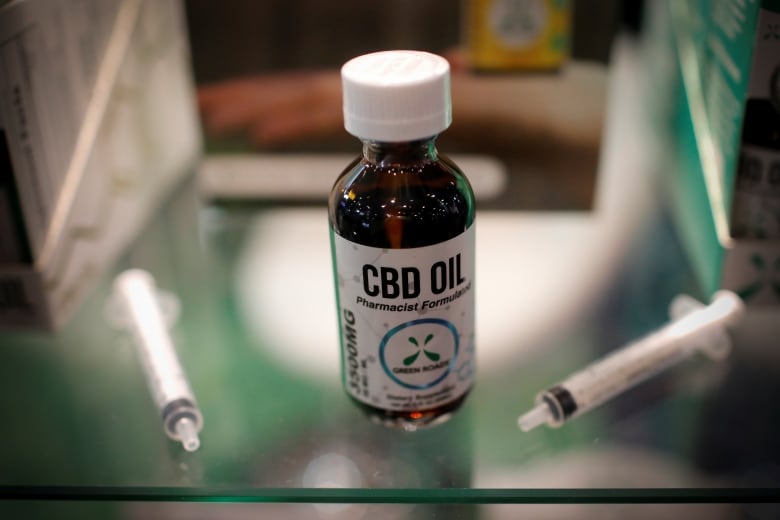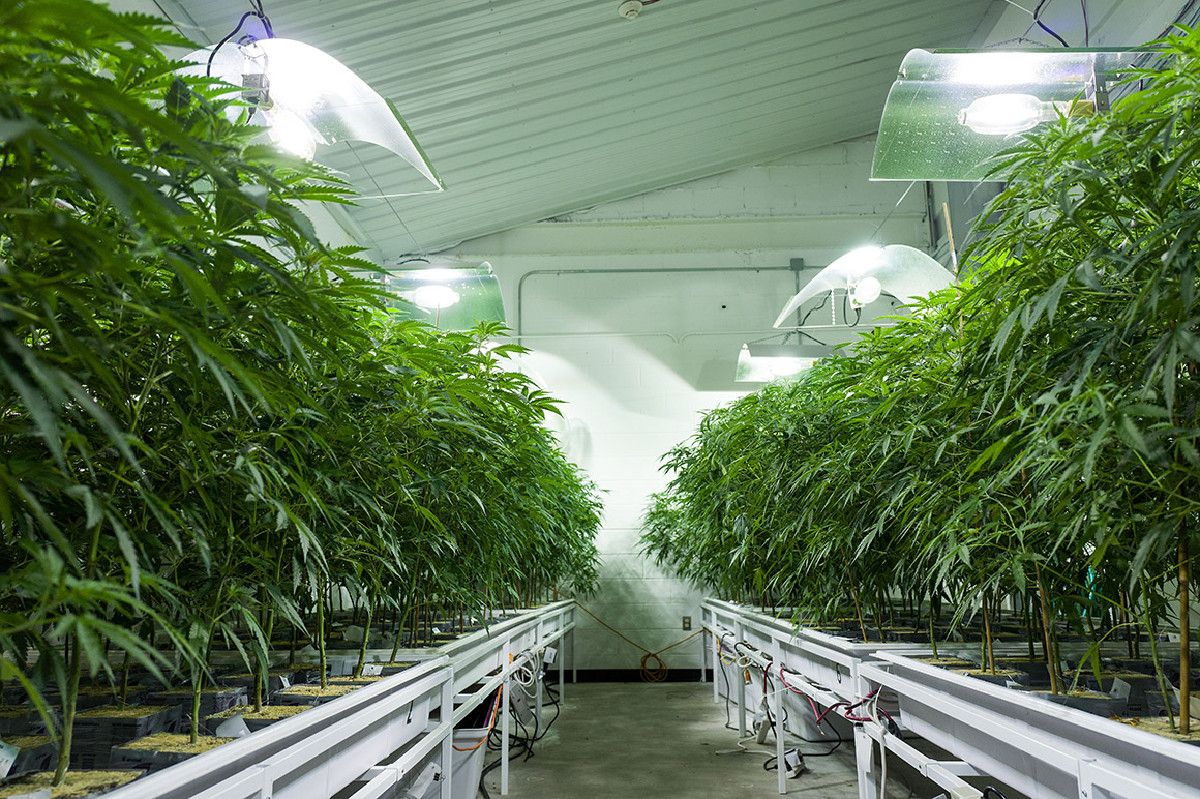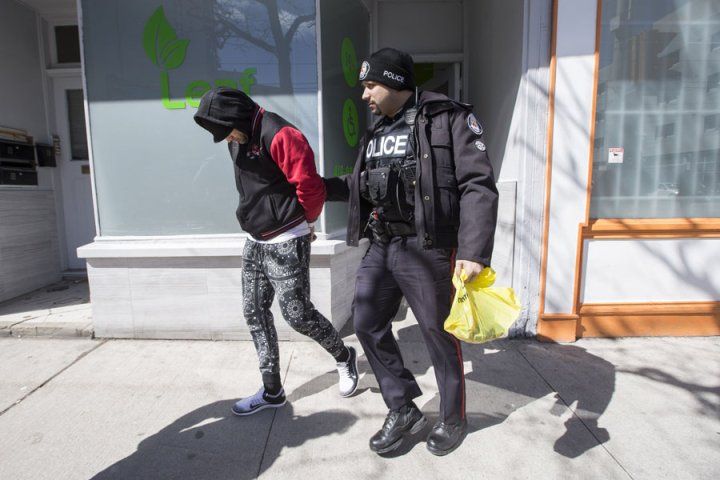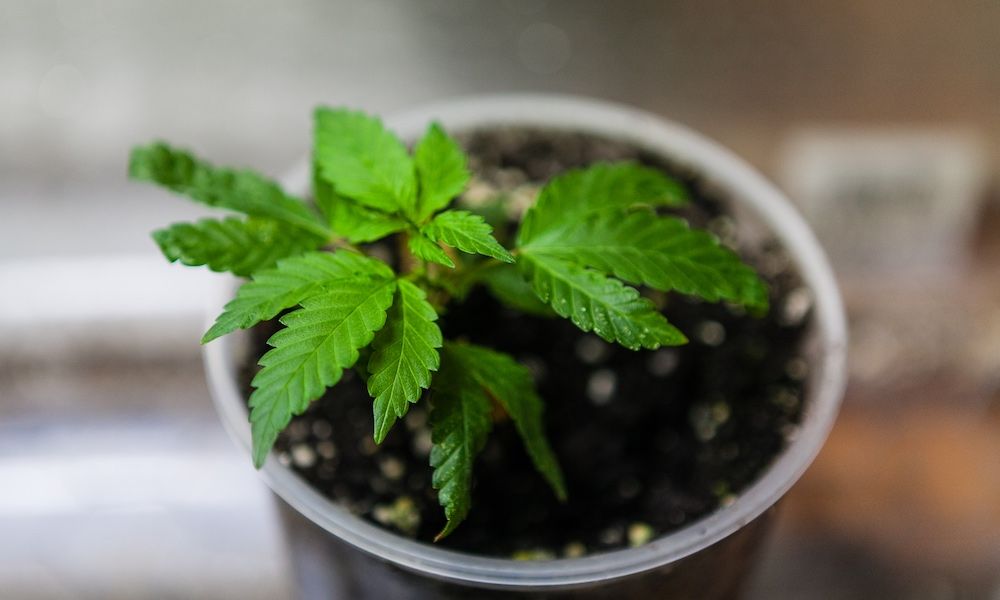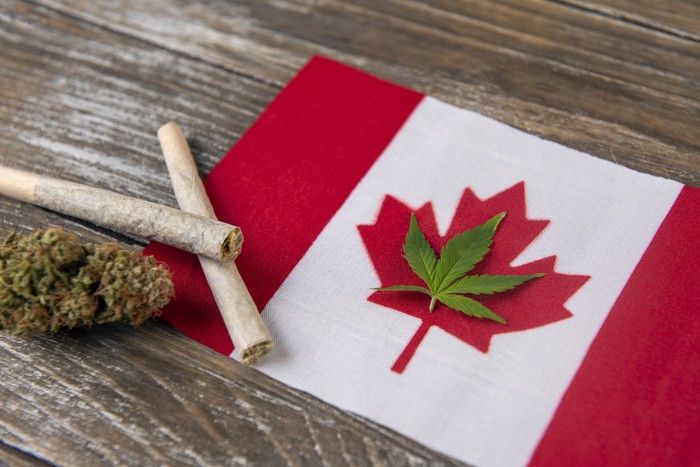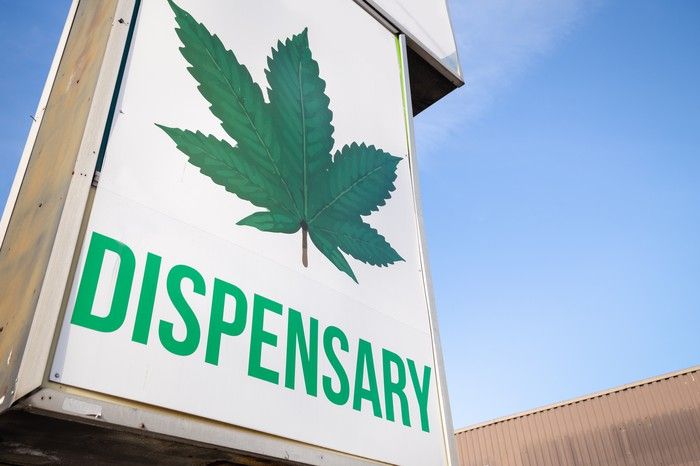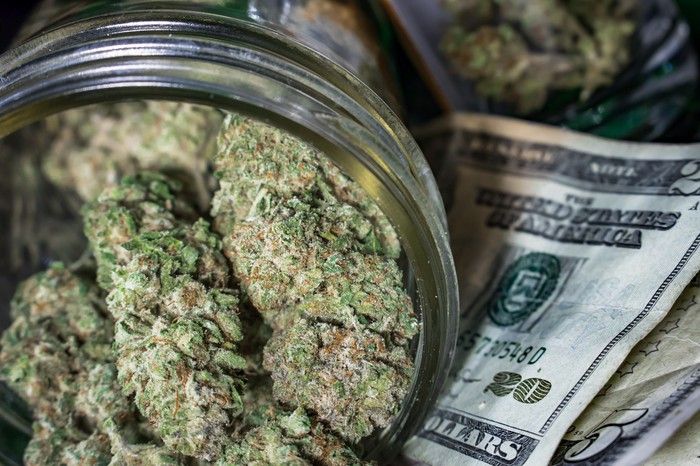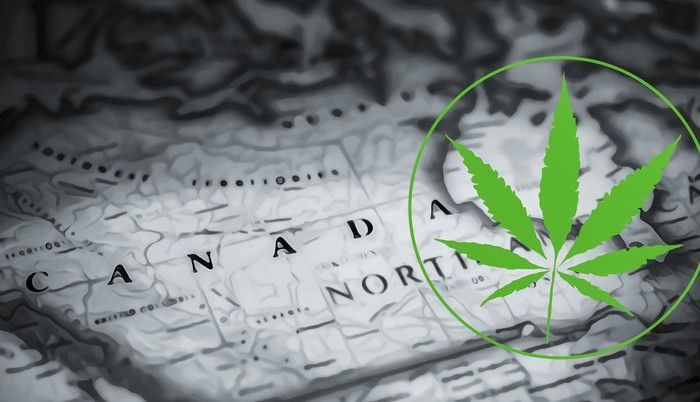Ah yes, the efficiencies of Government once again on display
The 1 Sentence From HEXO That Tanked the Entire Marijuana IndustryHEXO's fourth-quarter update is a warning to all pot stocks.
Sean Williams
Oct 11, 2019 at 7:51AM
The cannabis industry has been a
red-hot investment for years, with many early investors racking up triple- or quadruple-digit percentages if they had the wherewithal (and stomach) to hold on for the ride. Incredible growth projections, one of which calls for $200 billion in worldwide sales by the end of the next decade, have fueled the excitement surrounding cannabis.
But the past six-plus months have been nothing short of a disaster for the marijuana industry. A
number of problems throughout North America have stymied once lofty projections, and now that operating results actually matter, pot stocks have failed to deliver.
Image source: Getty Images.
HEXO dishes on its fourth-quarter results and it isn't pretty
On Thursday, Oct. 10, the latest in a line of marijuana failures hit the newswires. Prior to the opening bell, Quebec-based
HEXO (
NYSE:HEXO)
released its preliminary fourth-quarter operating results and updated its fiscal 2020 guidance.
When HEXO released its third-quarter operating results in mid-June, the company guided toward a rough doubling in sales during the fiscal fourth quarter, ended in July. For context, HEXO reported
about 13 million Canadian dollars in net sales during Q3 2019. Management also stood by its forecast for CA$400 million in full-year sales for fiscal 2020.
But just four months later, HEXO is withdrawing its fiscal 2020 guidance completely and has reduced sales expectations for the fiscal fourth quarter to a range of CA$14.5 million to CA$16.5 million. At the midpoint, this would represent modest sequential quarterly growth of around 19% when approximately 100% sequential sales growth had initially been expected.
Although HEXO didn't provide any commentary in its update on the company's bottom-line expectations, it's worth noting that HEXO's operating expenses totaled CA$24.1 million in Q3 2019 and they're liable to have grown in the recently ended fourth quarter. In other words, the implication is that HEXO will report another loss, at least on an operating basis and without one-time benefits and fair-value adjustments.
Image source: Getty Images.
The one thing HEXO said that completely wrecked the marijuana industry
We've certainly witnessed our fair share of operating disappointments in the pot industry of late. However, the negative impact of these disappointments is typically relegated to the company making the announcement and perhaps an immediate peer or two.
But that wasn't the case when HEXO updated its fourth-quarter expectations on Thursday. Instead of just HEXO's stock tanking, pretty much the entire industry went up in smoke. And one sentence in HEXO's fourth-quarter update looks to be to blame.
Though HEXO CEO Sebastien St-Louis noted that the company suffered from lower product sell-through (i.e., lower-than-expected sales), it's the commentary that followed that stood out. In particular, this statement from HEXO's press release is very worrisome: "Slower than expected store rollouts, a delay in government approval for cannabis derivative products and early signs of pricing pressure are being felt nationally."
If you pick this statement apart piece by piece, it's apparent that Canada's cannabis problems aren't an easy or quick fix.
Image source: Getty Images.
"Slower than expected store rollouts"
For starters, Canada has been contending with persistent supply issues since day one of legalization nearly a year ago (Oct. 17, 2018). Though some of this blame can be placed on the growers themselves for waiting too long to expand capacity, a larger portion of the blame rests with Health Canada and individual provinces.
Regulatory agency Health Canada entered the year with a backlog of more than 800 cultivation, processing, and sales licenses to review. These licenses often take many months, if not more than a year, to review and approve or deny. This process has kept cannabis out of the legal marketplace. And even with
changes to the cultivation license application process introduced earlier this year, there's no quick resolution to the regulatory agency's backlog.
Furthermore, certain provinces (ahem, Quebec) have struggled to approve licenses for physical dispensaries. In other words, even in instances where supply exists, consumers are forced to buy online and wait days or weeks for product delivery because few physical retail locations exist. This seems to be HEXO's chief complaint in its home province.
These issues are fixable, but that fix isn't going to happen overnight.
Image source: Getty Images.
"A delay in government approval for cannabis derivative products"
Another way Health Canada failed the marijuana industry is by giving the green light to cannabis derivative products later than expected. Derivatives are non-dried-flower products, such as edibles, vapes, infused beverages, topicals, and concentrates.
Heading into 2019, the expectation from pretty much everyone in the industry had been that derivative products would hit dispensary shelves no later than one year after recreational weed was legalized in Canada. However, in June, Health Canada
laid out a disappointing timeline on the rollout of derivatives.
Rather than these products hitting the market by October, only the regulations governing derivatives are
set to go into effect on Oct. 17, 2019. According to Health Canada, it's still going to take a good two months (i.e., until mid-December) before derivatives begin hitting dispensary shelves.
This is a
big problem, considering that derivatives are a higher-margin product than dried cannabis flower. Derivatives have become a significant component of every Canadian growers' product portfolio, meaning this launch delay is inescapable. From major pot growers like
Aurora Cannabis (
NYSE:ACB) and
Canopy Growth, which will be offering an array of vapes and/or infused beverages, to smaller growers, this delay in the launch of derivatives means waiting another one to two quarters before sales growth has any real shot of picking up for Canadian pot stocks.
Image source: Getty Images.
"Early signs of pricing pressure are being felt nationally"
As the icing on the cake, Canadian cannabis stocks are stuck between a rock and a hard place with
dried flower pricing beginning to sink, according to HEXO. This, of course, isn't a surprise given that we've witnessed oversupply and dried flower commoditization strike in a handful of recreationally legal U.S. states.
The concern is that marijuana stocks have no escape from these challenges. Dried flower is already a lower-margin product, and the per-gram price is already beginning to sink. Meanwhile, derivatives aren't going to hit dispensary shelves for at least two more months and their rollout will feature many of the same supply challenges that have plagued dried flower since it was legalized a year ago.
For example, Aurora Cannabis noted in its
fiscal fourth-quarter results, ended in June, that the average net selling price per gram of consumer cannabis products had declined by 6% from the sequential quarter. Aurora is beginning to benefit from economies of scale and its market-leading output, but it's a concerning sign that its average per-gram price for consumer cannabis is already declining rapidly despite persistent shortages still present in most Canadian provinces.
In short, HEXO's earnings warning isn't just a company issue. It's a shot across the bow for the entire industry that should rightly have pot stocks and marijuana investors concerned.
Sean Williams has no position in any of the stocks mentioned. The Motley Fool recommends HEXO. The Motley Fool has a disclosure policy.
Author
Sean Williams
(
TMFUltraLong)
A Fool since 2010, and a graduate from UC San Diego with a B.A. in Economics, Sean specializes in the healthcare sector and investment planning. You'll often find him writing about Obamacare, marijuana, drug and device development, Social Security, taxes, retirement issues and general macroeconomic topics of interest.
Article Info
- Oct 11, 2019 at 7:51AM
- Health Care
Stocks
 Aurora Cannabis Inc.
NYSE:ACB
Aurora Cannabis Inc.
NYSE:ACB
$3.73
up
$0.01
(0.40%)
 HEXO Corp.
NYSE:HEXO
HEXO Corp.
NYSE:HEXO
$2.71
down
$0.13
(-4.58%)
Related Articles
Canadian Cannabis Companies Are Struggling; Here's Why They Could Be Headed Even Lower
Pot stocks have crashed in value this year, and things may not be getting better anytime soon.
David Jagielski
Oct 11, 2019 at 8:00AM
About a year ago,
Aurora Cannabis (
NYSE:ACB) was trading as high as $12.52 a share, a sobering reminder for investors of how far the stock has fallen since then. Today, Aurora's stock is less than one-third of that price. But it isn't alone; since legalization took place in Canada last October,
marijuana stocks have plummeted in value. While it may be tempting to buy the stocks at their reduced prices, investors may want to hold off, as things could get worse before they get better.
Disappointing sales numbers could lead to further declines
What drove the industry to the heights it reached last year was the promises of growth and all the potential that there was in the market. However, with the Canadian market having an estimated market size of $5.2 billion in five years and the U.S. still being off limits (
besides hemp), the opportunity simply doesn't look that big. And that's even more obvious when you consider that even with Aurora's stock crashing as much as it has over the past year, it's still valued at more than $4.2 billion.
While the company does have a large international presence, many of those markets are still in their very early growth stages. Make no mistake -- the success of the Canadian market is going to be key for Aurora and other pot stocks to be able to achieve their lofty expectations. After Aurora disappointed investors with its fourth-quarter results, Chairman Michael Singer told BNN Bloomberg that having more retail pot shops in Canada is going to be critical to the company being able to achieve a positive earnings before interest, taxes, depreciation, and amortization (
EBITDA) figure.
IMAGE SOURCE: GETTY IMAGES.
However, that's assuming sales will also continue to grow at a high rate, and according to analysts from the CIBC (Canadian Imperial Bank of Commerce) the sales numbers that the cannabis industry is expecting for the next few years are simply unrealistic. The analysts see sales for cannabis producers reaching $2.2 billion Canadian dollars in 2020 and just CA$3.3 billion the year after that.
If that turns out to be the case, that could not only jeopardize Aurora's ability to generate positive EBITDA, but its ability to meet its own sales targets as well, which
has not been a given at this point.
Key takeaways for investors
One of the challenges with the cannabis industry thus far has been in estimating just how much sales it will achieve. This year, producers like Aurora have been able to smash last year's sales numbers because the recreational market wasn't open back then. And in 2020, they'll also benefit from derivative sales, which should commence in December and should give those figures a boost as well.
There's going to be a lot of pressure on companies to continue growing sales while also focusing more on profitability, and if there's a softness in either the sale of edibles or existing products, there could be even more of a sell-off of cannabis stocks.
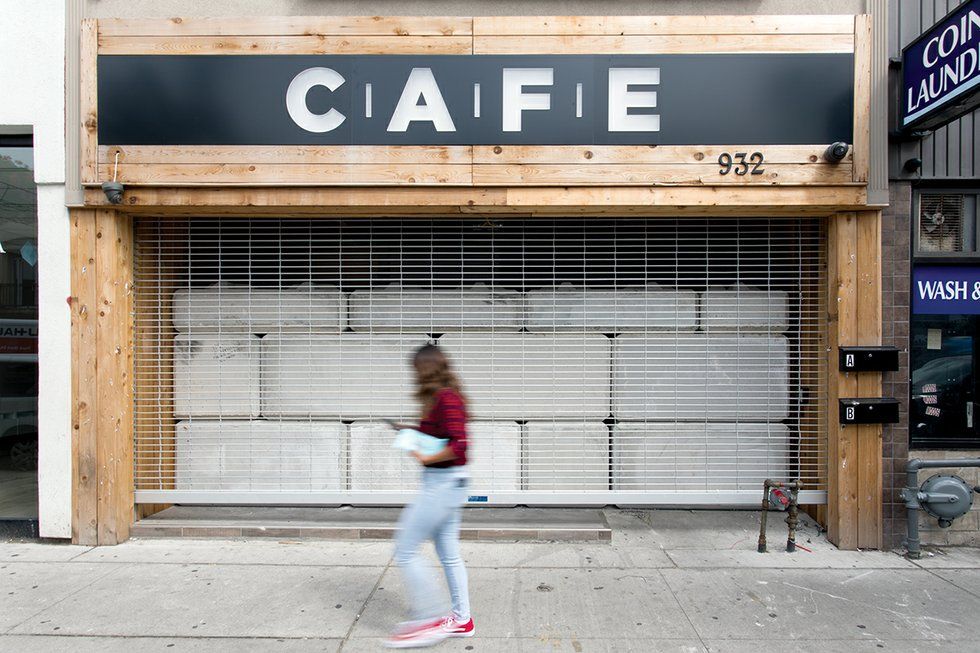
 nowtoronto.com
nowtoronto.com

